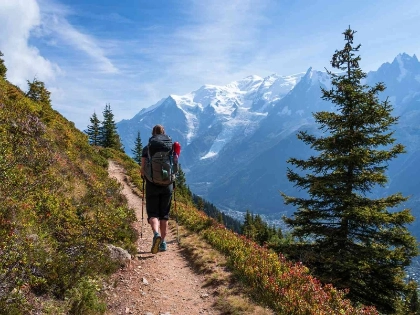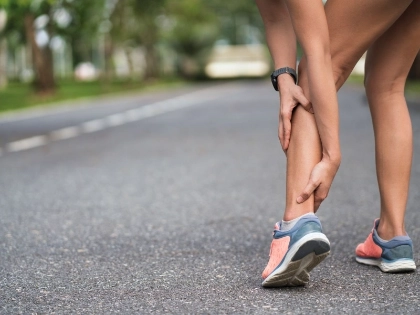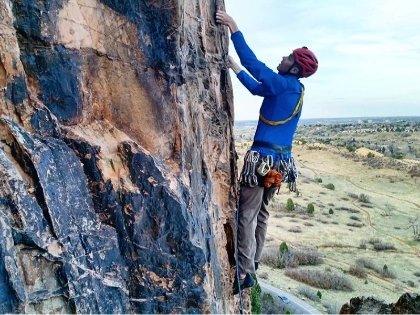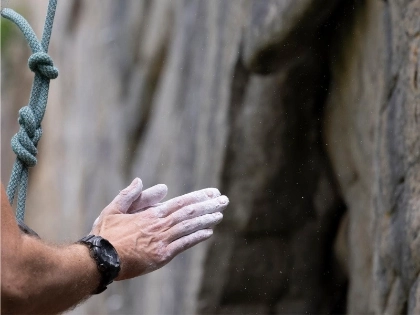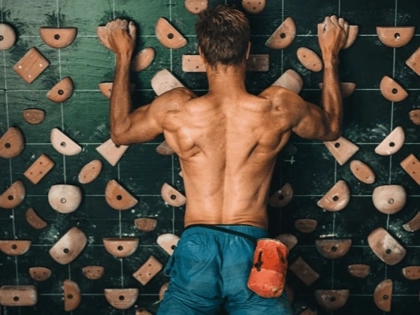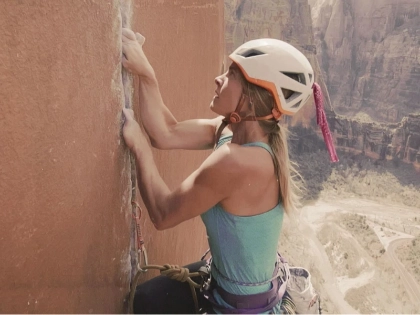How to Prevent Sweating in Your Palms During Bouldering
Climbing strengthens your fingers and, if you do it often, will cause your skin to harden more quickly. However, additional strength training are a good idea for more experienced climbing. No matter how much chalk they use, some people will always sweat like oily monkeys; this illness is known as hyperhidrosis and is treatable. Additionally, some specific goods may be of use.
Physiological
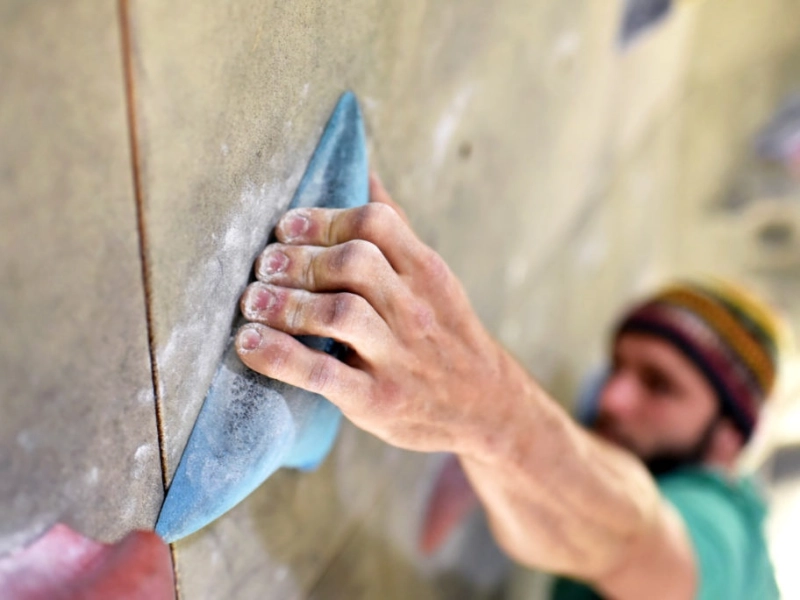
Psychological
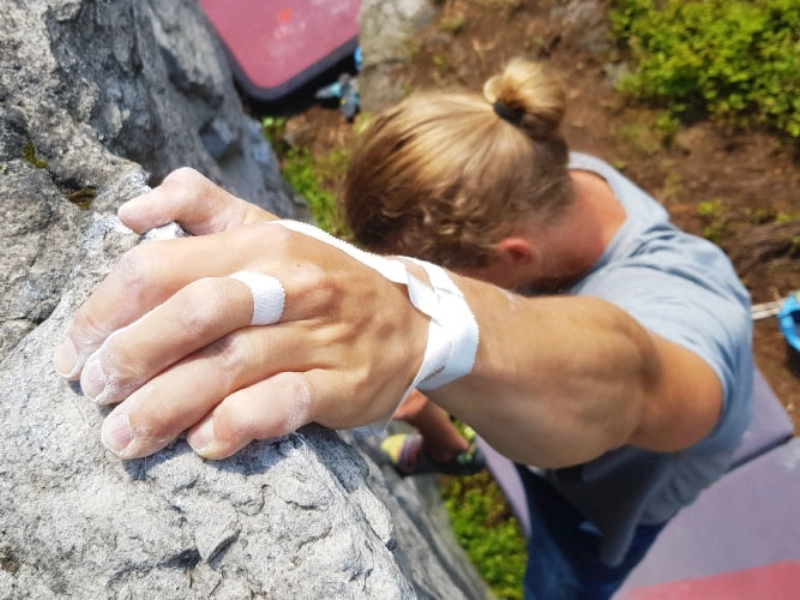 Climbing is a mental challenge in addition to being an excellent physical activity. For instance, a lot of climbers struggle with falling and have a fear of heights. Seeing the films and self-portraits that well-known climbers share online can be quite unsettling.
It's crucial to bring along plenty of pads if you plan to boulder. Everyone's fall will be safer and more comfortable if there is more foam on the ground.
Using a chalk bag with a waist strap is another way to relieve sweaty hands. It will make chalk easily accessible and enable regular application. However, avoid using too much as this may irritate your skin and cause it to get slick on the rock. It's also beneficial to chill down and allow your hands to dry in between tries. Additionally, it will keep your hands from slipping out of your grasp.
Climbing is a mental challenge in addition to being an excellent physical activity. For instance, a lot of climbers struggle with falling and have a fear of heights. Seeing the films and self-portraits that well-known climbers share online can be quite unsettling.
It's crucial to bring along plenty of pads if you plan to boulder. Everyone's fall will be safer and more comfortable if there is more foam on the ground.
Using a chalk bag with a waist strap is another way to relieve sweaty hands. It will make chalk easily accessible and enable regular application. However, avoid using too much as this may irritate your skin and cause it to get slick on the rock. It's also beneficial to chill down and allow your hands to dry in between tries. Additionally, it will keep your hands from slipping out of your grasp.
Surroundings
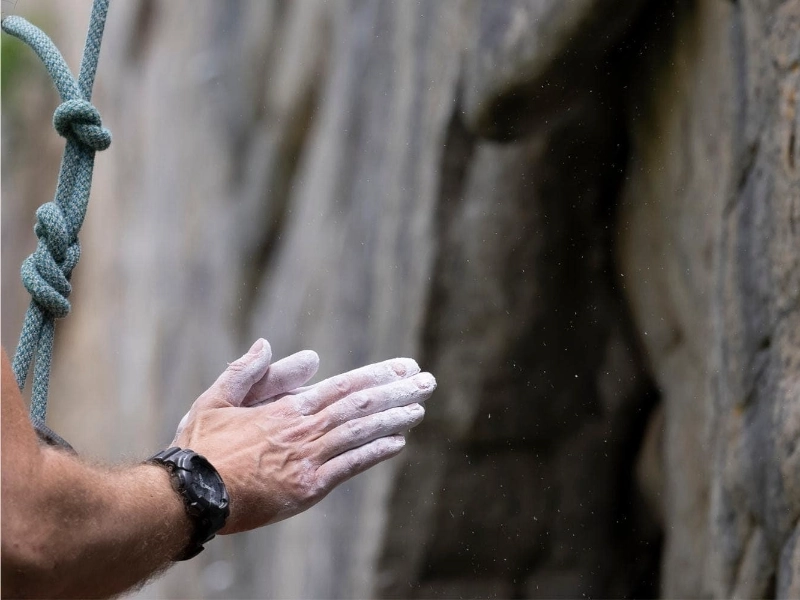 Even on the best of days, bouldering outside can be difficult. Gym climbers frequently struggle to handle the unusual holds on the wacky rock. It's far more difficult to grasp onto the rocky surface in hot weather. Fortunately, there are a few tips that can enable you to surpass your objectives when bouldering outdoors.
First and foremost, make sure you're wearing the right equipment for outdoor climbing. This includes a good supply of chalk for the hands and a pair of climbing shoes that offer superior support and traction. Bringing a crash cushion or two is also a smart idea in case you make a mistake and end up getting too close to the edge of the obstacle.
To help keep the air flowing around their skin and holds, some climbers like to bring a fan to the rocks. You must be cautious not to chill down too much, though, as this may leave your fingers too numb to hold anything securely.
Even on the best of days, bouldering outside can be difficult. Gym climbers frequently struggle to handle the unusual holds on the wacky rock. It's far more difficult to grasp onto the rocky surface in hot weather. Fortunately, there are a few tips that can enable you to surpass your objectives when bouldering outdoors.
First and foremost, make sure you're wearing the right equipment for outdoor climbing. This includes a good supply of chalk for the hands and a pair of climbing shoes that offer superior support and traction. Bringing a crash cushion or two is also a smart idea in case you make a mistake and end up getting too close to the edge of the obstacle.
To help keep the air flowing around their skin and holds, some climbers like to bring a fan to the rocks. You must be cautious not to chill down too much, though, as this may leave your fingers too numb to hold anything securely.
Medical
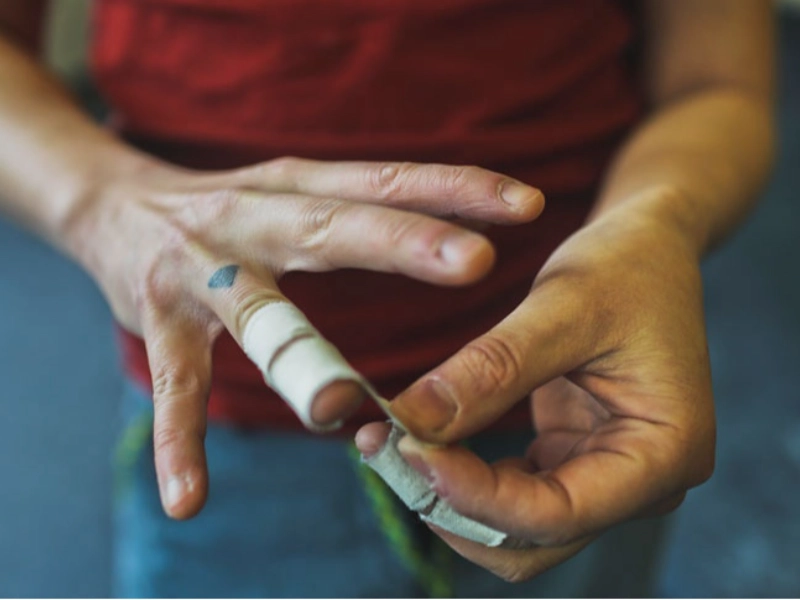 It can be difficult to get your palms to cease perspiring when bouldering. Numerous factors, including as your food, hormones, and environment, may be to blame. There are a few approaches to solving the issue, though.
It's important to have shoes that don't stretch too much, and the Five Ten Airflyer (seen below) is the greatest choice for people who have sweaty feet. The shoe is made of synthetic material, light weight, and lots of rubber for increased traction.
Bouldering requires a spotter to be effective. To make sure that any environmental risks are covered, they will shift pads in accordance with the climber's movements. Moreover, they serve as a safety line in case the climber falls.
After a session, a lot of boulderers apply skin conditioner to their hands to assist prevent them from slipping off holds. Contrary to popular belief, this improves the hands' ability to grip the rock, not making them softer and more slippery.
It can be difficult to get your palms to cease perspiring when bouldering. Numerous factors, including as your food, hormones, and environment, may be to blame. There are a few approaches to solving the issue, though.
It's important to have shoes that don't stretch too much, and the Five Ten Airflyer (seen below) is the greatest choice for people who have sweaty feet. The shoe is made of synthetic material, light weight, and lots of rubber for increased traction.
Bouldering requires a spotter to be effective. To make sure that any environmental risks are covered, they will shift pads in accordance with the climber's movements. Moreover, they serve as a safety line in case the climber falls.
After a session, a lot of boulderers apply skin conditioner to their hands to assist prevent them from slipping off holds. Contrary to popular belief, this improves the hands' ability to grip the rock, not making them softer and more slippery.
